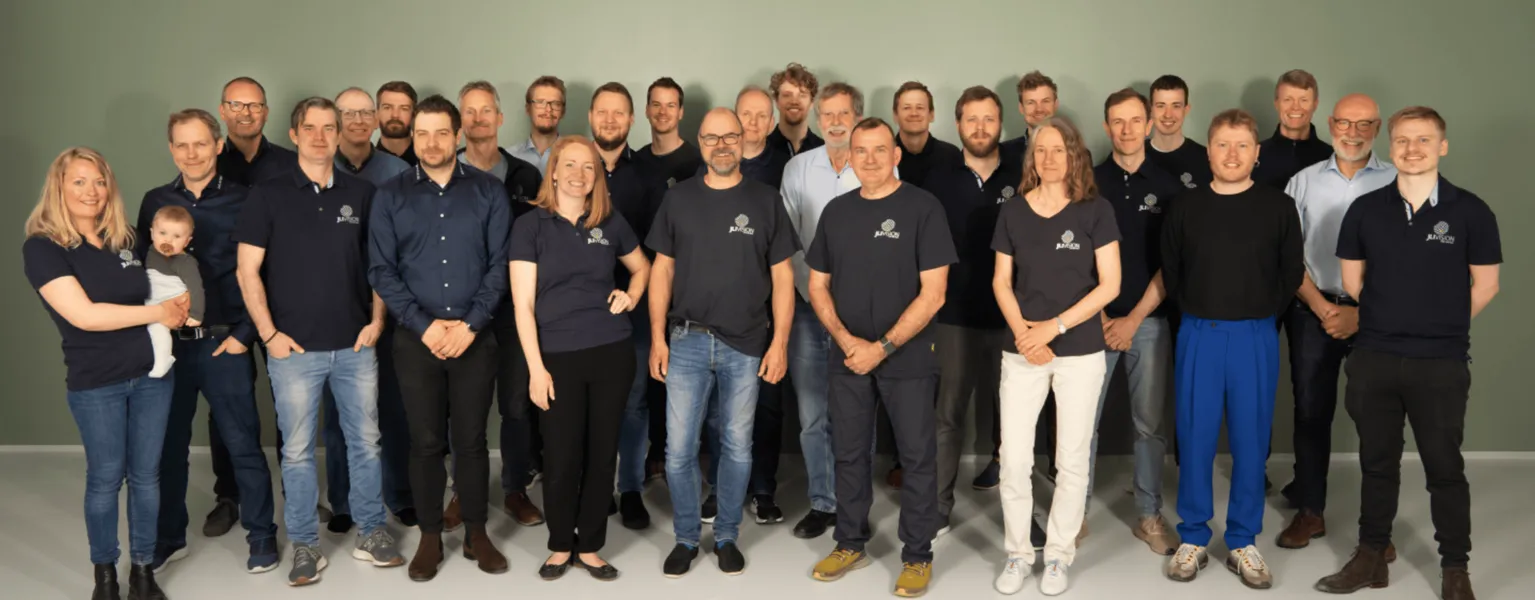JLI: what to expect from machine vision in 2023

Supplier News
JLI looks forward to 2023
What a record breaking year it has once again been at JLI in 2022, here are just a few highlights from the past year: 70 on-going projects, hired 7 new people, increased turnover and profit, received the Gazelle award for high growth, working on becoming even more "green" and taking responsibility for planet Earth through the Ecovadis system.
Looking back, we sincerely hope that the worst of the energy-crisis, galloping inflation and electronics supply chain issues are behind us and that we can return to more normal situations. We are confident that industrial machine vision technologies play an integral part in enabling more automation and quality control in the future production environment.

We expect to grow JLI further in 2023 through existing and new exciting partnerships, and with more focus on creating products rather than projects. Our strategy of hiring new talents in order to have 20% excess resources for research and development will continue. Organisational-wise we want to keep a "flat" structure because we believe that if you go out of your way to hire talented people, you should also trust them to know how to do their job.
The new and extra resources will also be used to strengthen our own machine vision platform with new advanced tools and an updated user-interface. It is our aim to have enough free capacity for us to quickly test the samples we receive from customers in our extensive laboratory and provide rapid feedback. All our labs are constantly being updated with new hardware such as different 3D scanners, optics, filters, illumination, and advanced colour and multispectral cameras.
Artificial Intelligence (AI)
The importance of AI in our machine vision systems is growing. In 2022 the number of JLI projects containing AI grew significantly and is expected to grow even more in 2023. AI is now used regularly for both detection and classification in many different industries and on different raw materials. Applied the correct way on organic materials it can help customers achieve better quality and replace manual inspection. When using AI in the medical device industry it requires that the system performance can be validated which is not a trivial procedure. At JLI we will in 2023 continue working on making validation more accessible and also work on maintaining and upgrading networks with traceability.
Surface Inspection
In recent years we have seen an increase in the demand for surface inspection of organic materials such as wood, lacquered/foiled products, steel, plastic, glass, isolation material, gypsum etc. JLI was among the first to introduce high speed advanced AI for complex inline inspection tasks thus providing instant knowledge about the production state. In 2023 we will continue to develop these capabilities and help operators to potentially identify the root cause of any recurring problem. Our advice is always to put systems in as early as possible and for complete new lines to think them in from the start. Through the use of AI, JLI is developing specialised pre-trained networks aimed at categorising and detecting complex surface defects such as orange peel, glossy stripes, pinholes, scratches/cracks, spots, dirt, chips/dents and even identifying dust to lower false detection rates. Pre-trained networks will lower the development time in general and allow higher detection rates.
Virtualisation
Virtualisation is a new business model that leverages the cloud to apply state-of-the-art machine vision techniques to images captured by cameras and in our case inline in production. Centralising the image processing on either a virtual server or in the cloud offers some compelling advantages, such as the ability to quickly deploy sophisticated new features without requiring upgrades of installed camera hardware or retracting the computer hardware from a hot, cold or dusty environment with a lack of space. On the downside there are limits in terms of speed to the type of applications that can be solved. The bandwidth of the network may also be a limiting factor.
This article was originally published by JLI Vision.





